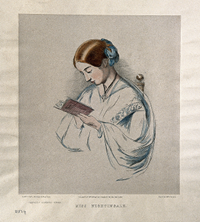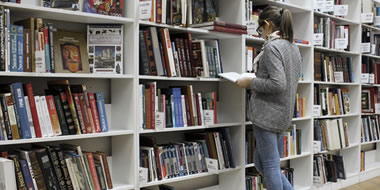-
Study
-
UCAS Clearing 2024
- Clearing Courses
- The Clearing Process
- UCAS Tariff Points
- Clearing 2024 FAQs
- Confirmation
- Clearing Virtual Event
-
Undergraduate
- Search for a Course
- Undergraduate Open Day & Events
- Application Guides
- Northumbria University UCAS Exhibitions
- Foundation Years
- Undergraduate Fees & Funding
- School & College Outreach
- Continuing Professional Development
-
Postgraduate
- Postgraduate Study Degree
- Postgraduate Research Degrees
- Postgraduate Open Days and Events
- Postgraduate Fees & Funding
- Flexible Learning
- Thinking about a Masters?
- Continuing Professional Development
- Change Direction
-
Student Life
- The Hub - Student Blog
- Accommodation
- Life in Newcastle
- Support for Students
- Careers
- Information for Parents
- Students' Union
- Northumbria Sport
-
-
International
International
Northumbria’s global footprint touches every continent across the world, through our global partnerships across 17 institutions in 10 countries, to our 277,000 strong alumni community and 150 recruitment partners – we prepare our students for the challenges of tomorrow. Discover more about how to join Northumbria’s global family or our partnerships.
View our Global Footprint-
Applying to Northumbria
- European Union
- Our London Campus
- Northumbria Pathway
- International Events
- Entry Requirements and Country Representatives
- Regional Offices
-
Northumbria Language Centre
- Faculty Requirements
- Acceptable English Requirements
- Pre-Sessional English and Study Skills
- Academic Language Skills Programmes (ALS)
-
International Fees, Funding & Scholarships
- International Undergraduate Fees
- International Undergraduate Funding
- International Masters Fees
- International Masters Funding
- International Postgraduate Research Fees
- International Postgraduate Research Funding
- International Money Matters
-
Life at Northumbria
- International student support
- Careers
-
International Mobility
- Current Northumbria Students
- Incoming Exchange Students
-
-
Business
Business
The world is changing faster than ever before. The future is there to be won by organisations who find ways to turn today's possibilities into tomorrows competitive edge. In a connected world, collaboration can be the key to success.
More on our Business Services -
Research
Research
Northumbria is a research-rich, business-focused, professional university with a global reputation for academic quality. We conduct ground-breaking research that is responsive to the science & technology, health & well being, economic and social and arts & cultural needs for the communities
Discover more about our Research -
About Us
-
About Northumbria
- Our Strategy
- Our Staff
- Place and Partnerships
- Student Profiles
- Alumni Profiles
- Leadership & Governance
- Academic Departments
- University Services
- History of Northumbria
- Contact us
- Online Shop
-
-
Alumni
Alumni
Northumbria University is renowned for the calibre of its business-ready graduates. Our alumni network has over 237,000 graduates based in 178 countries worldwide in a range of sectors, our alumni are making a real impact on the world.
Our Alumni - Work For Us
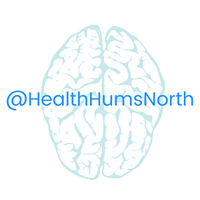
Northumbria’s Medicine, Health and Wellbeing in the Humanities Research Group reflects the University’s dedication to cross-disciplinary working to engage with some of the most important subjects to our society. With a chronological coverage from the early modern period to the present day, members of this group hold a variety of specialist interests in both physical and mental health, as well as the wider cultural management of the body. Our research has been supported by a range of funders such as the Leverhulme Trust, Wellcome Trust, the Arts and Humanities Research Council (AHRC), along with the Engineering and Physical Space Research Council (EPSRC), the Northern Bridge Consortium Doctoral Training Partnership (AHRC), and the European Commission (Marie Skłodowska-Curie Actions Research Fellowship Programme).

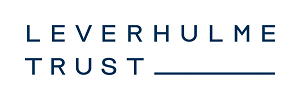
Our Research Group collaborates with other regional, national and international institutions and we are keen to test the boundaries and shape the future of medical and health humanities and its surrounding cultures. Examples of this type of work include the Wellcome Trust-funded project ‘Thinking Through Things: Object Encounters in the Medical Humanities’ and Tickets for the Afterlife, an interactive experience developed in collaboration with Death Positive Libraries and funded by the Wellcome Trust, Carnegie UK, and The Wolfson Foundation, Engaging Libraries Phase 2.
Members of the group also work within and lead a range of learned societies including the NorthernNetwork for Medical Humanities (NNMH), British Society for Eighteenth-Century Studies (BSECS), International Laurence Sterne Foundation, North American Society for the Study of Romanticism (NASSR), and the British Association for Contemporary Literary Studies.
We enjoy working with the public and making positive contributions to contemporary problem-solving. We have worked with a variety of organisations including The National Trust, The Sleep Charity, Newcastle Libraries, New Writing North, and Durham Book Festival. Exhibitions of members’ work have taken place at BALTIC Centre for Contemporary Art, SNGMA, Edinburgh; Beaux Arts (ENSBA), Paris, Shandy Hall, Yorkshire; the Royal Society of Medicine, London and the Gulbenkian Museum, Lisbon. Our researchers also engage with UK Parliament and its processes for creating change. New members from across the University are always welcome, as is contact from organisations or prospective research students who might be interested in working with us. For further information follow us on X (Twitter): @HealthHumsNorth or email our Research Group Lead, Dr Diletta De Cristofaro.
Across our wide array of interests, we have a number of signature themes that highlight just some of our current and developing research, as well as previous activities:
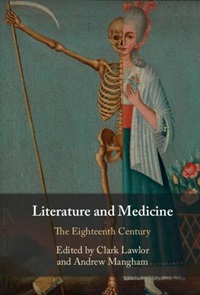 The Language and Literature of Medicine
The Language and Literature of Medicine
At the core of our work is an active interest in literature, language and medicine. We enjoy exploring themes such as narrative medicine and the linguistics of health communication. Medical manuals, novels, poetry, periodicals, remedy books, manuscripts, comics, memoir, and policy make up just some of the types of writing with which our researchers work, as exemplified by one of our most recent major projects funded by the Leverhulme Trust, ‘Writing Doctors: Medical Representation and Personality, ca. 1660-1832’. Our researchers also worked with the National Trust’s Seaton Delaval Hall and North-East families to provide fun-filled learning on medicine of the past through our performance event Georgians’ Marvellous Medicine.
Mental and Cognitive Health, Illness, and Wellbeing
Mental and cognitive health and wellbeing has been a longstanding interest of Northumbria’s medical and health humanities team. One of our early collaborative research projects, ‘Before Depression’, established this as an interest which has only since grown. Our team engages not only with conceptualisations of mental health and how it has been culturally managed throughout time, but also the range of lifestyle factors to which mental wellbeing is connected. Community and outreach projects with organisations in the heritage sector bring arts and historical resources to health and social care challenges related to ageing. One of our current projects, ‘Writing the Sleep Crisis’, funded by the Wellcome Trust, explores how sleep, and lack thereof, is represented in contemporary writings across fiction, non-fiction, and digital culture to understand the cultural understandings of sleep underpinning the so-called sleep crisis. The project involves collaboration with the Northumbria Centre for Sleep Research. Find out more on X (Twitter): @writing_sleep
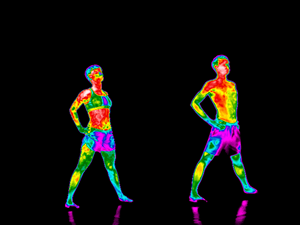 Equality, Diversity and Inclusion for Health and Wellbeing
Equality, Diversity and Inclusion for Health and Wellbeing
We engage with themes such as gender, sexuality, professional identity, disability, and education, examining how each affects health culture and experience. In November 2020 we ran our Sex Education Zine Café as part of the Being Human Festival. This event offered an opportunity for our researchers to come together with groups who have been underrepresented in the building and delivery of sex education, notably those who identify as being part of the disabled, queer, trans and women’s communities. Discussions focused on the past, present, and future of learning and how we can keep supporting a more inclusive education. Earlier research has also approached health equalities from a socio-economic perspective, such as our collaborative Leverhulme project ‘FashionableDiseases: Medicine, Literature and Culture, ca. 1660-1832’.
Health Inequalities and Place-Based Healthcare
In order to think holistically about EDI in healthcare, we also need to be able to problem-solve in areas where we know that inequalities affect the health and wellbeing of particular communities and localities. Research and public engagement are powerful tools in working towards better futures for everyone and our institutional position within the North East means that we can support challenges both within our immediate environment and across the wider UK. Our staff team has experience in exploring these issues through interdisciplinary and collaborative approaches that include expertise by experience (EbE) and the role of arts and culture in making underrepresented voices heard. An example is the recent ‘Reimagining Sleep’ project, funded by the Wellcome Trust and run in partnership with The Sleep Charity, which culminated in an online art exhibition co-produced with project participants.
Allied Health Humanities
We take a special interest in allied health humanities and look to push the boundaries of the field to include nursing and midwifery. Work within our Group looks at inter-professional education, the heritage of allied health professions, and mentoring. A Banner Project, funded by Northumbria’s Institute of Humanities, explored the contribution that humanities might have to make current challenges in midwifery and changes in models of care as outlined in the Better Births National Maternity Review and the more recent Ockenden Report. It is our belief that Humanities subjects have a significant role to play in the advancement of effective and sustainable healthcare and communication for the future.
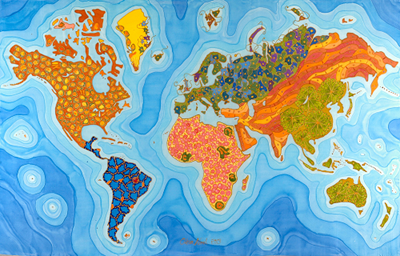 Membership
Membership
Professor Christine Borland (Arts) (ADSS)
Professor Toby Brandon (Social Work, Education, and Community Wellbeing) (HLS)
Beth Brigham (Northern Bridge PGR, English Literature) (ADSS)
Dr Katherine Butler (Music) (ADSS)
Dr Christina Cooper (Social Work, Education, and Community Wellbeing) (HLS)
Dr Emma Croft (Social Work and Community) (HLS)
Dr Diletta De Cristofaro (English Literature) (ADSS)
Grace Denton (Arts PGR) (ADSS)
Professor Jason Ellis (Psychology) (HLS)
Dr Mel Gibson (Social Work, Education, and Community Wellbeing) (HLS)
Dr Helena Goodwyn (English Literature) (ADSS)
Professor Joanne Gray (Nursing, Midwifery, and Health) (HLS)
Dr Mimi Huang (English Language) (ADSS)
Emeritus Professor Allan Ingram (English Literature) (ADSS)
Professor Clark Lawlor (English Literature) (ADSS)
Dr Matthew Lievesley (School of Design) (ADSS)
Professor Monique Lhussier (Social Work, Education, and Community Wellbeing) (HLS)
Professor Claire Nally (English Literature) (ADSS)
Liz Pavey (Theatre and Performance) (ADSS)
Dr Stacey Pitsillides (School of Design) (ADSS)
Dr Patrick Randolph Quinney (Applied Sciences) (HLS)
Dr Ian Robson (Social Work, Education, and Community Wellbeing) (HLS)
Professor Katy Shaw (English Literature) (ADSS)
Dr Alison Steven (Nursing and Midwifery) (HLS)
Laurence Sullivan (Leverhulme Trust PGR English Literature) (ADSS)
Professor Brian Ward (History) (ADSS)
Dr Leigh Wetherall Dickson (English Literature) (ADSS)
Dr Helen Williams (English Literature) (ADSS)
Dr Dominic Williams (History) (ADSS)
Dr Rebecca Wright (History) (ADSS)
Tweets by HealthHumsNorthEnglish Research
- American Studies
- Creative Writing
- Eighteenth-Century and Romantic Studies
- English Language and Linguistics
- Environmental Humanities
- Gendered Subjects
- Medicine, Health and Wellbeing
- Medieval and Early Modern Cultures
- Christopher Marlowe
- Modern and Contemporary Writings
- Power, Politics and Pedagogy
- Scholarly Editing and Print Culture
- Postgraduate Study


